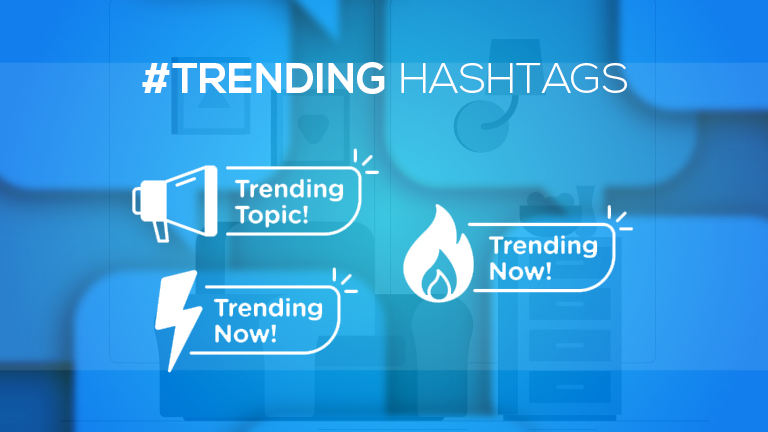How to Use Hashtags for Business

Hashtags are a single word or group of words after the symbol ‘#’, known as a hash. Introduced in Internet Relay Chats for messaging and live chats, hashtags were initially used for tweet chats on Twitter for open group discussions around a specific topic. Its popularity started from Twitter where people used it for tweet chats. Here are some useful tips for using common hashtags:
- Checking the common hashtags used by followers, competitors, and product partners
- Engaging with users using common hashtags that are related through retweets, likes, and comments
- Refraining from spamming your post with tons of common hashtags which may not impart trust in your consumer
Different types of hashtags are used for various purposes, e.g., brand and campaign specific, content-specific, and trending hashtags. Let us dive into each of them in detail and talk about its use.
Brand and Campaign Hashtags
Brand hashtags are made specifically for your own business to promote and market your brand. It can be your brand name or the tagline of your company. It should be unique that defines your business and can be used as your signature tag.

For the marketing of your brand, you should get people to use your unique hashtags. Detailed research for the hashtags you are thinking about is to be done by using Twitter, Google+, Facebook, and Pinterest before implementing. The brand hashtag should be short and easy to spell so that your customers can remember it and use it correctly.
Campaign hashtags are made uniquely for every marketing campaign of your business such as if you are having a summer sale at your store; a unique hashtag can be used for further promotion. As people use your campaign hashtag, an extended reach will be acquired. You can use the name of your current marketing campaign as the campaign hashtag, which will be unique and different to engage your customers. Some of the useful tips on using business and campaign hashtags are as follows:
- It should be unique and consistent
- It should generate awareness and more engagement of the marketing efforts of your brand
- It should be small, easy to remember and spell for your consumers
- It should be monitored so that you can respond to people easily
Trending Hashtags
Trending hashtags are very popular nowadays as people are usually referring to hashtags that are trending and most talked about. They are continuously changing in real-time; a top 10 trend can come and go within a period of merely a few minutes. A trending hashtag can be used when it is related to your business or content. Using a trending hashtag can get your message to reach a massive audience.

However, avoid spam hashtags in your posts particularly if they are irrelevant to your content or business. This could be viewed as a poor etiquette and in some cases, your account may be suspended.
Content Hashtags
These types of hashtags are being used in daily posts. They do not define your marketing campaigns or business or are trending but they are related to your posts. They mainly improve the SEO of your posts by making the consumers see your updates who are searching for, using the hashtag words.

The main categories or content hashtags are product hashtags, event hashtags, lifestyle hashtags, and location hashtags. Product hashtags are the ones that people search for common products that they use. These hashtags help to connect the product to its market. Lifestyle hashtags are used for people who have common lifestyles to market their demographics and hobbies.
Event-based hashtags can be used for specific content updates such as well-known global celebration or product launch. The use of geo-targeted hashtags can help locally-based businesses connect with their local customers.
Now that you have learned the details and use of different types of hashtags, make your content or brands stand out by using these amazing hashtags.
Latest posts by Moiz Khan (see all)
- How to Use AI to Enhance your SEO Strategies? - August 31, 2023
- What You Need to Know About Test Automation in DevOps - August 30, 2023
- 6 Cloud Computing Challenges That Businesses Need to Be Aware of - August 22, 2023

 Careers
Careers


